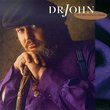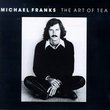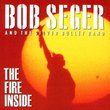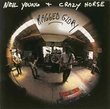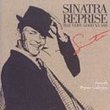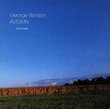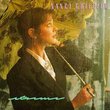| All Artists: Johnny Griffin Title: Big Soul Band Members Wishing: 5 Total Copies: 0 Label: Ojc Release Date: 7/1/1991 Genres: Jazz, Pop Styles: Swing Jazz, Bebop Number of Discs: 1 SwapaCD Credits: 1 UPCs: 025218648523, 0090204070015, 025218648547, 090204070015 |
Search - Johnny Griffin :: Big Soul Band
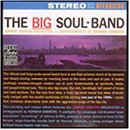 | Johnny Griffin Big Soul Band Genres: Jazz, Pop
|
Larger Image |
CD DetailsSimilarly Requested CDs
|
CD ReviewsIf You Can't Feel The Heat.....GET OUT OF THE KITCHEN!!!! Beverly Praiswater | 02/03/2008 (5 out of 5 stars) "This HOT, HOT, HOT jazz orchestra recorded these deeply-moving sessions in 1960. The real tragedy is that this collection has been seriously overlooked by many as it is in a category all it's own! The first two numbers "Wade In The Water" and the alternate version "Wade In The Water", BLEW me out of the water! Who could possibly choose a favorite between them??? "Panic Room Blues" is a swinging but sophisticated experience. "Meditation" is sultry with a pinch of funk and a pinch of swing. Check out those ivories from Bobby Timmons! "Holla" is an up-tempo cooker. "So Tired" is SO NOT tired! And listen to the rich notes from the deeply emotional "Deep River". Sure, this is a departure for Johnny Griffin's classic jazz, but what an opportunity to experience his musical roots and his maturity as an artist! (A brilliant artist is always reaching new heights.) This emotionally-charged collection of songs from all of these accomplished jazz artists is a feast for the ears! There is funk, soul, jazz, blues, spirituals, and gospel all wrapped up in one work. If you love jazz orchestras (e.g. Gerald Wilson) then you'll love this one!" 3.5 for me. Jazzcat | Genoa, Italy Italy | 10/18/2004 (3 out of 5 stars) "The booklet anticipate this thing ... "Since this was the very first time Riverside had been involved in anything as complex as eleven men and fully worked-out arrangements, and some of the musicians we had called were not all that experienced in that area, some of the ensemble passages are less than totally smooth. "Wade in the Water" was only the second number attempted, and the previously-unissued performance now added to the album was its first complete take and is admittedly on the ragged side. But it does provide a striking example of how strongly Johnny Griffin was playing and how imaginative were his improvisations over the full band background." Not very encouraging. But probably what you want to know at this point is, "is it true"? Did they record this music with lesser players? Is it this record enjoyable? Does it deserve to be listened? These were the guys involved: Clark Terry, Bob Bryant, Julian Priester, Matthew Gee, Pat Patrick, Frank Strozier, Edwin Williams, Charlie Davis, Bobby Timmons, Harold Mabern, Bob Cranshaw, Vic Sproles, Charlie Persip. I see at least five or six exceptional names, Harold Mabern, Clark Terry, Bobby Timmons, Charlie Persip, Bob Cranshaw, ,,, Johnny Griffin obviously. These are not lesser players for sure. But I don't know the music contained here. The arrangements for this big band album were made by Norman Simmons a young arranger at the time which had Johnny Griffin faith. I'll listen to this music now, and I'll review this album while listening to its music for the very first time. A nice experiment isn't it? I'm curious like you can be. Let's see what this album is all about together, ok? Let's go!
Wade in the water There are two different takes of this tune which is a traditional. The first version is the alternate take. It begins as a medium tempo riff thing, with some soul lines played by the orchestra, very bluesy riffs. Then Johnny come in and add his blowing. I can't hear nothing wrong at this point. At a certain point the orchestra plays an ostinato and Johnny punctuate the time in opposite. Nice effect. The tune is quite nice. Now the second version. It begins a little differently, with some hand clapping and some lines from the bass .. the orchestra punctuate with its riffing. It is a little more sophisticated version but essentially nothing changes. Johnny's sound is full, big, very very satisfying tenor sound. He excels in this kind of tunes linked to the blues and with an earthy feeling. There are no significant differences between the two takes. Simply the second it's a little bit more sophisticated in its beginning. Panic room blues This one is an orchestrated blues. The first part it's a little bit mechanical but once the blowing starts the tune gets better. The blowing is good, the arrangement is nothing spectacular but coherent. There are some riffs from the orchestra that punctuate the solos. In the end its ok, nothing major but ok. Nobody knows the trouble I've seen Another traditional. This is ballad's time. This tune begins with Johnny playing by himself, freely. Then the orchestra come in and do its job. The tune is very nice. The orchestra job is ok. Sure the arrangements are a little bit conservative and prudential. Nothing surpirses you. But anyway .. Meditation An original by Simmons the arranger. It's a medium tempo tune in 3/4, curious enough. It's a thing in minor. The piano gets a long solo as the first instrument over the orchestra than it is time for the trombone. Then comes the trumpet. In the end of the tune the arrangement becomes a little more adventurous than before (around the fifth minute). A nice mood change. In the last minute comes the time for Johnny's blowing part. He's great as always. He plays in this album in his soul manner. Not fast as in other albums. He plays bluesy and soulful. Holla Another original by Simmons, medium-fast. This is in 4/4. It opens with an ostinato by the orchestra. Trumpet does some blowing over the modal vamp. Then Johnny arrives adding a couple of notes. This tune has a nice minor atmosphere. Briefly the swinging begins. In the end the orchestra grows and occupy a big space. Nice tune. The orchestra work could be better to be honest. So tired By Bobby Timmons. It begins as a riffing bluesy thing then it opens a little bit melodically for the bridge, then the third A part close the tune as it begun. It is a minor vamp for the most part. The bridge moves the harmony around a little bit but the third A part take the tune again on the minor bluesy-soul vamp. Johnny's playing is very very good. The orchesta punctuates the solo at some point around the third minute. A little repetitive. The combo under the horn parts swings good anyway. There's time for a funky piano solo by Harold Mabern. Some notes from the trumpet. Deep river The last traditional. It opens with some statements from the orchestra. It's a ballad. Griffin states the melody. It's nice. At some point it has a kind of soul-gospel flavour (at the end of the A section for example it ends with an 11, if I'm not going wrong ... this is a typical gospel closing device). At the end of the tune the drum pattern changes. It becomes a sort of shuffles. The tune closes with some cool notes by Johnny. Jubilation By Junior Mance. This tune has become a standard in its own right, I think you already know what it's about. It has a nice funky-blues theme. Here the orchestra job is well done. The tempo is medium-fast. Did I enjoy the listening? Yes, I didn't shout for joy but I enjoyed this listening session. Do I consider this album essential? Not very much. How do I rate the playing? Johnny's playing very good, other soloists playing consistent. The orchestra job? Decent. You can buy it. It's not impressive or essential in any way but it's a decent album. With some flaws in the orchestra Job ... be prepared. 3 stars and a half. " |

 Track Listings (9) - Disc #1
Track Listings (9) - Disc #1